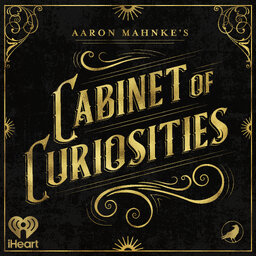Shifting Sands
We people put their plans in motion, the results are usually exactly what they were aiming for. But on today's tour, you'll learn about two situations where that certainty was far from reality.
Learn more about your ad-choices at https://www.iheartpodcastnetwork.com
 Aaron Mahnke's Cabinet of Curiosities
Aaron Mahnke's Cabinet of Curiosities


